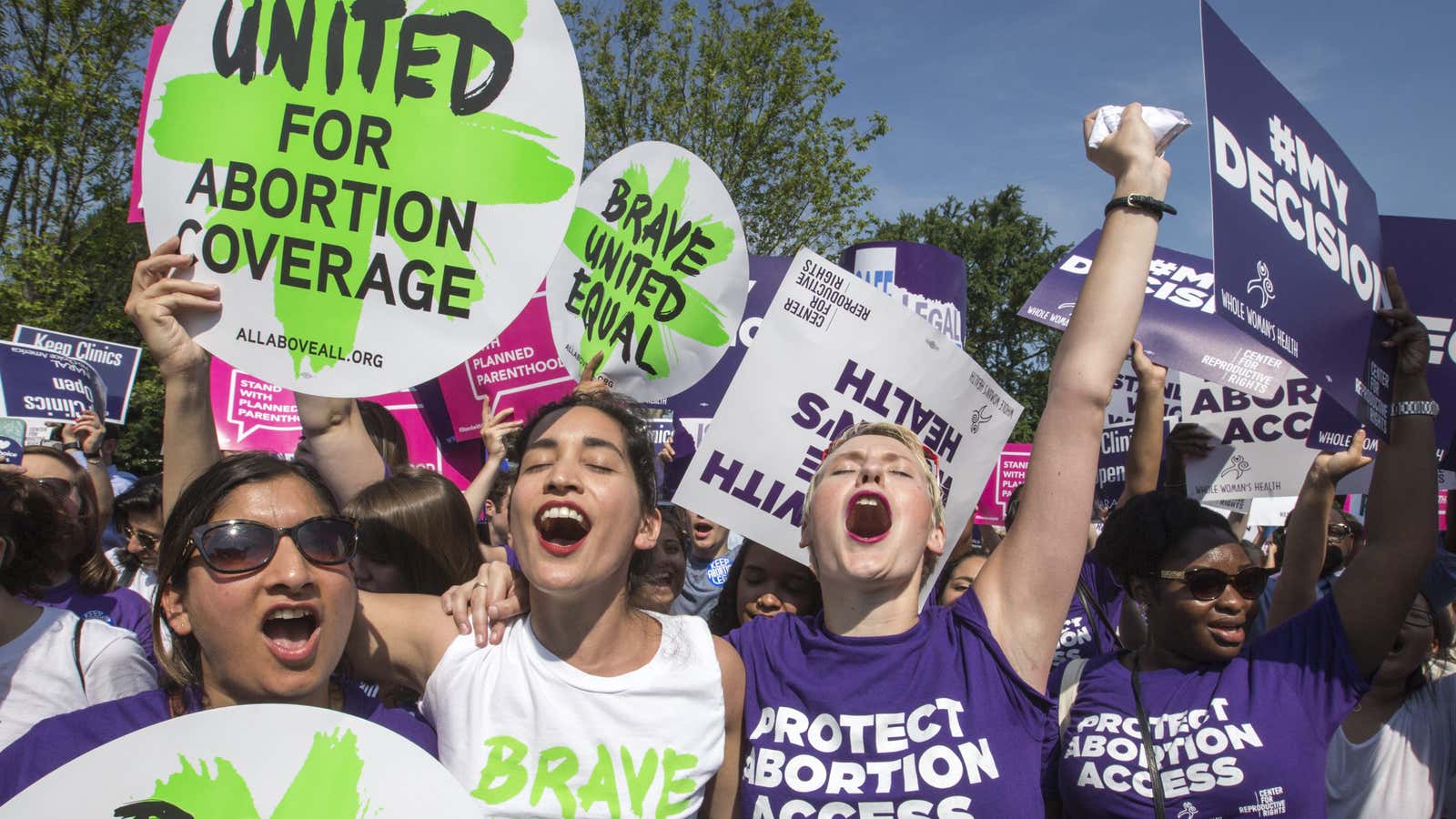The US Supreme Court today (June 27) overturned a Texas law that severely limited access to abortion.
Justices voted 5-3 to strike down the bill (pdf), known as HB2, which required doctors to obtain admitting privileges at nearby hospitals and for clinics to meet costly hospital-grade building requirements, such as increasing the width of hallways. More than half of Texas’ abortion clinics were forced to close since the law was passed and signed by the state’s Republicans, leaving a vast area about the size of California without any abortion providers.
The Supreme Court decided the “regulations are medically unnecessary and unconstitutionally limit a woman’s right to an abortion.” The case, Whole Woman’s Health v. Hellerstedt, is the court’s first major case on abortion since 2007, and today’s decision represents one of the most important rulings on abortion access in decades. In Whole Woman’s Health, the court had to determine whether the Texas law placed an “undue burden” on women seeking abortions, a standard of constitutionality established in Planned Parenthood v. Casey in 1992.
Texas state officials were divided in their remarks toward the court’s ruling. Texas attorney general Ken Paxton defended the bill in a statement:
“HB2 was an effort to improve minimum safety standards and ensure capable care for Texas women. It’s exceedingly unfortunate that the court has taken the ability to protect women’s health out of the hands of Texas citizens and their duly-elected representatives.”
Texas congressman Joaquin Castro tweeted that, “Greg Abbott, Dan Patrick and other Texas conservative leaders knew or should have known that HB2 was unconstitutional but passed it anyway.”
Women’s Health is one of three major cases (all coming out of Texas) that the Supreme Court ruled on in the past week. The other two concerned affirmative action and immigration enforcement. In Fisher v. University of Texas II, the court ruled that Abigail Fisher, a white woman, was not denied acceptance into the University of Texas at Austin because of her race, ending a legal battle over university admissions and diversity that has gone on since 2012
The court was evenly split, 4-4, when it came to immigration enforcement, upholding a lower court’s decision to block president Barack Obama’s executive order that allowed undocumented immigrants to stay in the US. The plan, known as Deferred Action for Parents of Americans and Lawful Permanent Residents, would have allowed nearly 4 million undocumented immigrants to live and work in the US.
Had Obama nominated already a ninth justice to replace the late Antonin Scalia before today, the Supreme Court would have likely ruled 6-3 against the Texas abortion ban, which would have constituted landslide victory for reproductive rights advocates. Even if Scalia had dissented in today’s opinion, the law still would have been struck down, 5-4.




